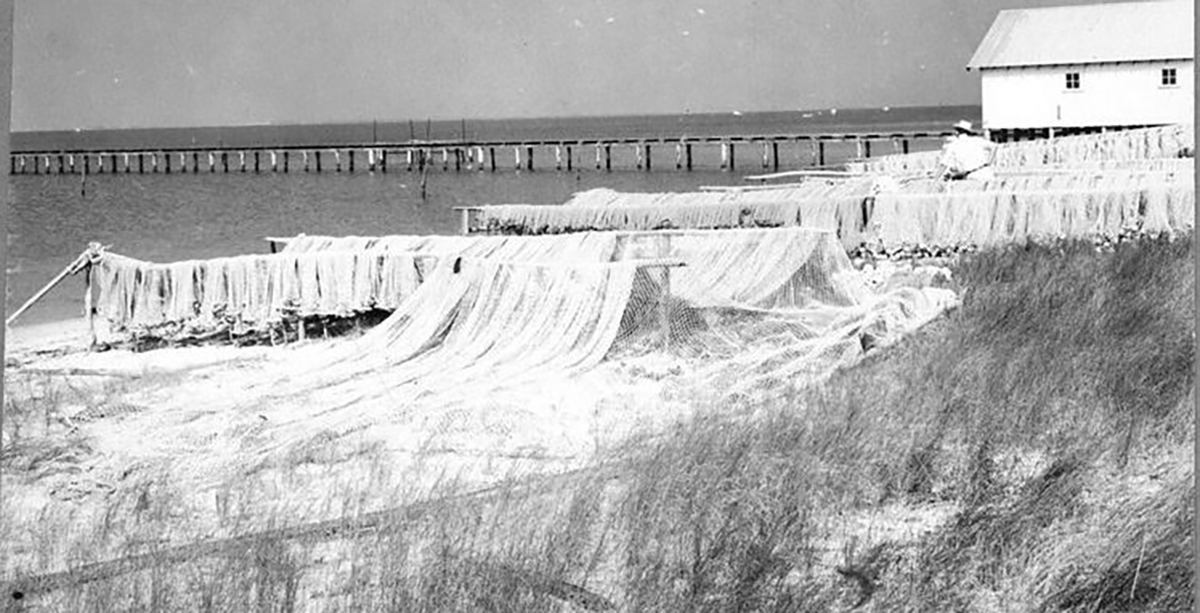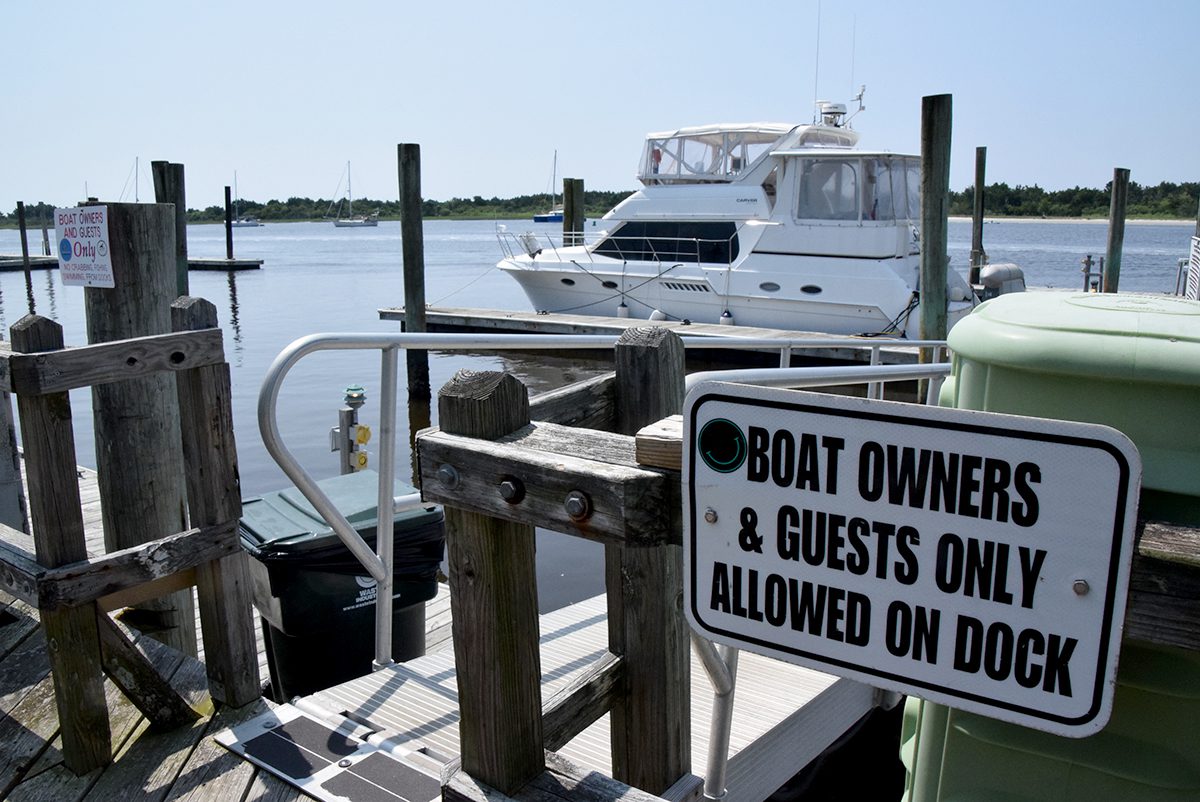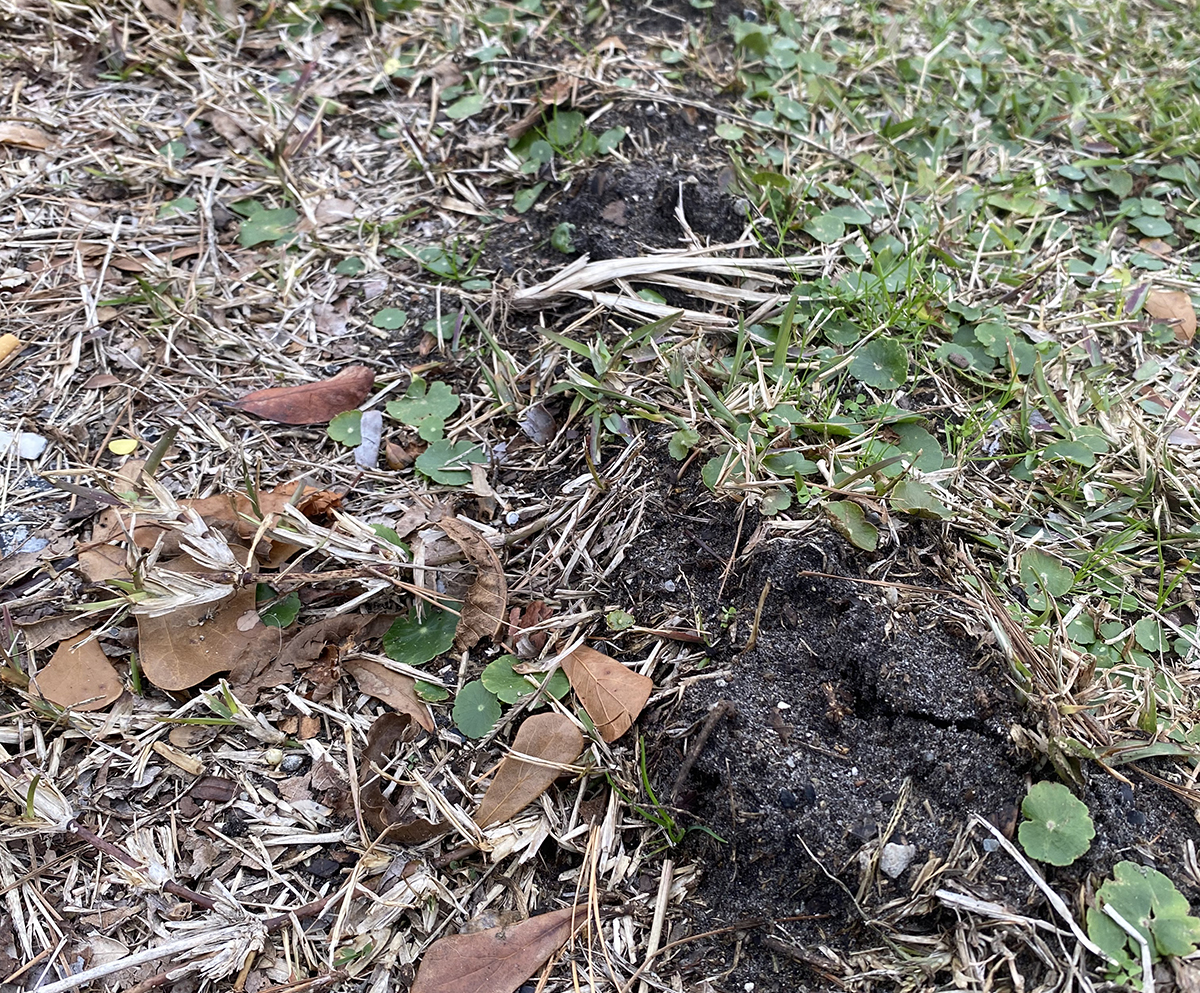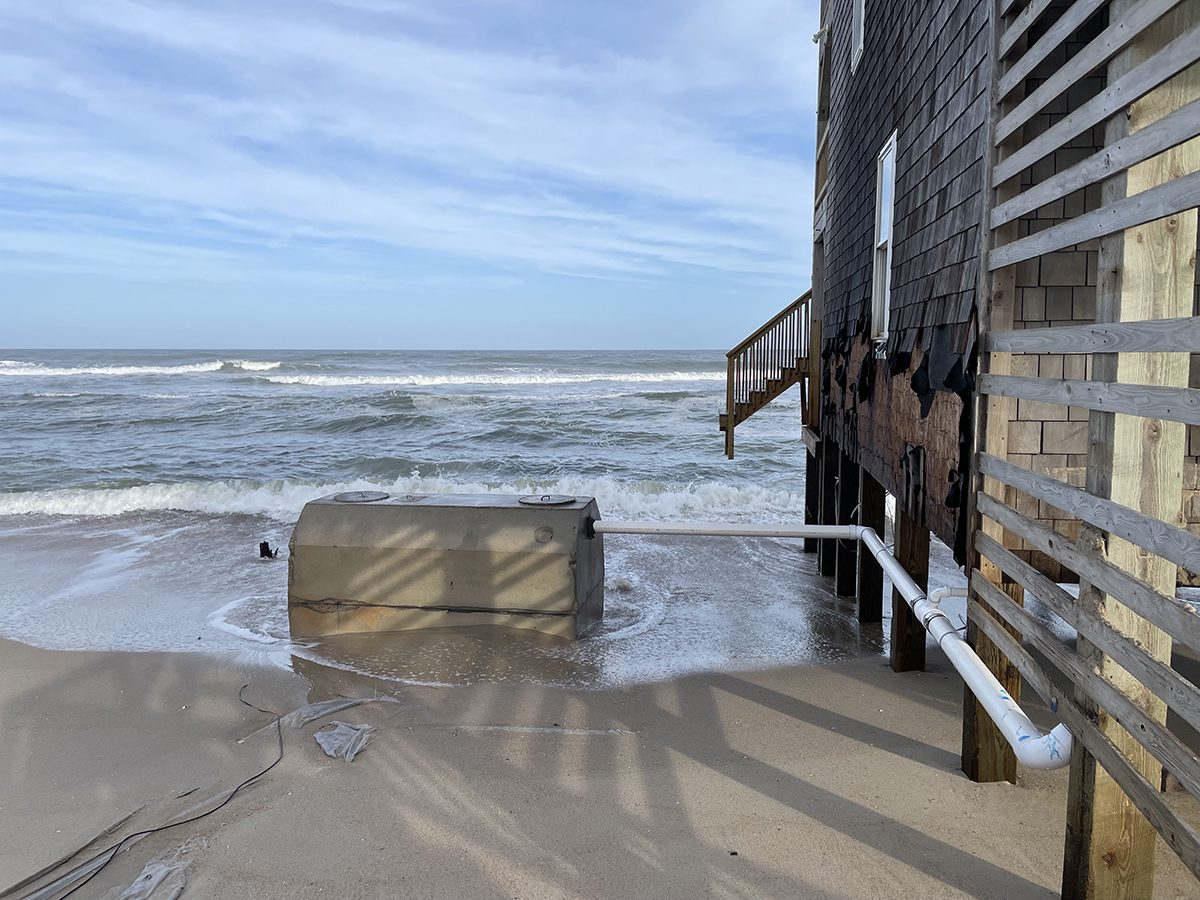
First in a series.
RODANTHE — Nothing good can be said about septic tanks leaking their foul contents onto a public beach. It sounds even worse that it’s within a national seashore on the Outer Banks renowned for its beautiful, clean beaches.
Supporter Spotlight
That unfortunate reality illustrates the challenge adapting to rising seas under outmoded policies and a bureaucracy paralyzed by competing interests.
“We have observed septic seeping out as recently as Saturday,” Dave Hallac, superintendent of Cape Hatteras National Seashore, said Thursday.
In the wake of several houses this year falling into the sea, Hallac said that about two-dozen houses in Rodanthe remain exposed to the ocean, where much of beachfront has lost the protective dune.
The national seashore’s physical scientist Michael Flynn said that the National Park Service was notified Oct. 29 about a strong odor of sewage on Ocean Drive in Rodanthe, where a number of houses, some with exposed and damaged septic tanks, are standing on the beach just yards from the swirling Atlantic. Earlier this year, three large houses on the same road collapsed into the ocean, littering miles of shoreline.
When Flynn inspected the area Sunday, he found that the whole drain field for one septic tank was washed out, he said, and another appeared to have an unsealed pipe that led to its drain field.
Supporter Spotlight
“It was two hours before low tide,” Flynn said. “You could see the high tide line. (The surf) was probably washing over the pipe.”
Rodanthe, one of seven village communities on Hatteras Island, has one of the highest rates of beach erosion on the Outer Banks. At Mirlo Beach, at the north end of Rodanthe, the average annual erosion rate has been as high as 14 feet.
According to Flynn, between 1998 and 2022, the average annual rate of erosion on Ocean Drive has ranged from 9 to 12 feet. In Buxton, another highly eroding shoreline that was recently renourished, he said that the erosion rate over that same period averaged about 6.8 feet a year.
The issue was reported to the Dare County Planning Department and the county Department of Environmental Health, which administers septic permits for the state.
According to information provided in an email Thursday from the county health department, a total of 24 septic systems had been compromised by storm damage at 15 different oceanfront properties this year. Nine septic repair permits were issued for Rodanthe properties, and remaining property owners may not have applied for a permit, or are waiting for new surveys to be completed.
“Several properties had repair systems installed and then subsequently washed out again,” according to the email. “In a few instances, the repair system was installed and washed out before the dwelling was ever reoccupied and as such would not contain any sewage.”
Property owners are required by state law to have a septic contractor remove and dispose of unusable old tanks. The county health department said it was not aware of any abandoned tanks, but if the system is on park service land, the federal agency would issue the removal order.
If a property owner does not comply, the first enforcement action would be issuing a Notice of Violation, followed by an Intent to Suspend, and finally an Immediate Suspension of Operation. But typically, the real estate property manager is notified, and the property is taken out of the rental program until repairs are made. If a compromised property is occupied, the occupants must be immediately relocated. Currently, there are no legal actions pending against any property owner, the health department said.
“In any case, the real estate company and property owner are instructed to have the remaining contents of the septic tank pumped out by a pumping and hauling service immediately,” according to the email.
Dare County Planning Director Noah Gilliam said that between February and July, notices were sent to more than 20 oceanfront property owners in Rodanthe and three in Buxton about various threats to their property, ranging from fallen decks to undermined foundations to damaged wastewater systems to risk of collapse.
Gilliam said that the county works with property owners to find solutions on a “case-by-case approach” to each damaged property.
“We’re still encouraging people to seek out an alternative method,” he said, including relocation, which can easily cost more than $100,000.
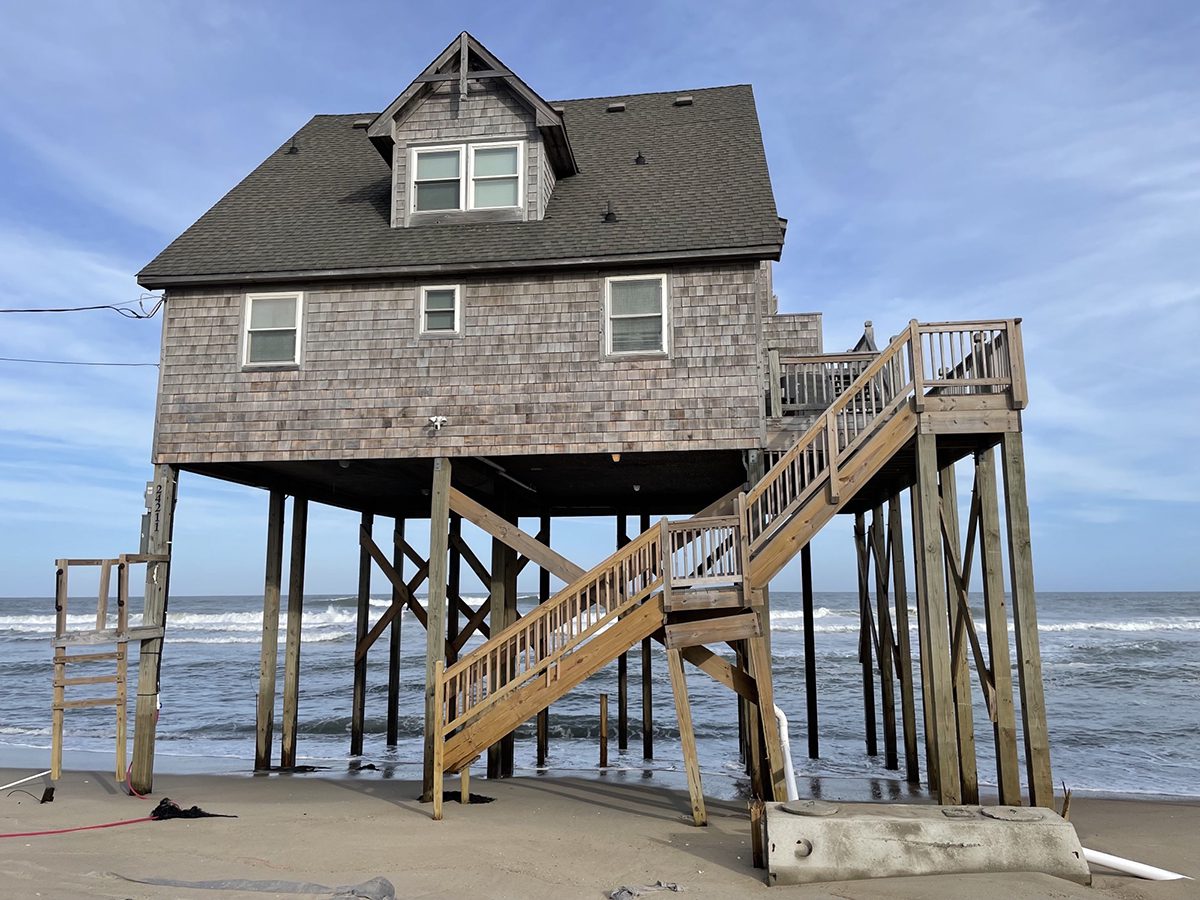
So far, three Rodanthe property owners have moved their houses away from the ocean, either farther back on their lot, or to another lot, and two more are in the process of obtaining permits.
Also, a private community was recently granted its request by the state to have Seagull Road declared officially abandoned, freeing up 45 feet of land under the road to relocate 12 houses.
On-site septic systems in North Carolina are regulated by the North Carolina Department of Health and Humans Services under rules adopted by the Commission for Public Health, according to the department’s website. The commission’s septic rules are administered by local health departments, under the supervision of the On-Site Water Protection Branch within the Division of Public Health. If more than 50% of a septic system is damaged, under the rules it is no longer eligible for repair without a permit. There are also rules regulating setback and distance the system must be located from the house.
The state Division of Coastal Management is in the process of reevaluating and rewriting septic system rules, noted Ana Zivanovic-Nenadovic, assistant director of policy for the nonprofit North Carolina Coastal Federation, which publishes Coastal Review. One place to start, she said, would be for the state to follow the Department of Health rule already in place that bars septic tanks in areas subject to frequent flooding unless they’re watertight enough to withstand a 10-year flood.
“They do not remain operable during a 10-year storm because they’re ripped apart and leak sewage,” she said.
But as Zivanovic-Nenadovic said, the issue with big houses collapsing on eroded beaches goes beyond broken septic tanks littering shorelines. The Coastal Federation is working with the National Park Service, the state and other partners to find solutions that protect the public trust beach, the overall environment, private property rights and public access to the resources.
Operating under the same rules, regulations and policies is clearly not sustainable, she said. What can be done so at-risk houses sitting in surf zones are considered uninhabitable? What are realistic rules to locate septic systems on shorelines? How can homeowners be forced to clean up their houses that fall into the ocean, and what should be considered proper cleanup?
“This is a complex interplay of things that can be done on multiple levels,” Zivanovic-Nenadovic said.
Meanwhile, if someone wants to buy an oceanfront house today in Rodanthe, they’ll have plenty to choose from on Zillow and other online real estate sites. Including on Ocean Drive.



